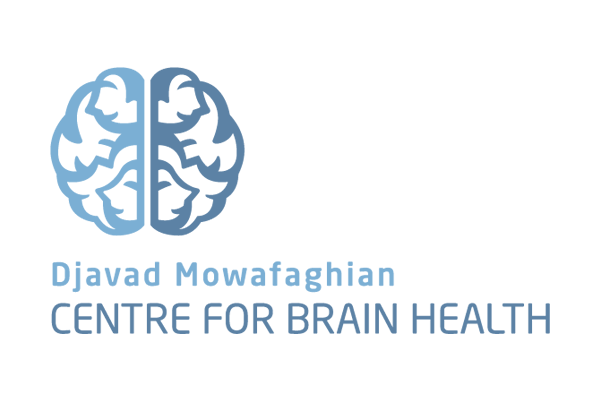Kwon, Brian
Professor, Department of Orthopaedics, Faculty of Medicine, UBC Email: brian.kwon@ubc.ca UBC G+PS Profile: https://www.grad.ubc.ca/researcher/14636-kwon Djavad Mowafaghian Centre for Brain Health Profile: https://www.centreforbrainhealth.ca/faculty/brian-kwon/ Categories:
Kumar, Ujendra
Professor, Faculty of Pharmaceutical Sciences, UBC Email: ujendra.kumar@ubc.ca UBC G+PS Profile: https://www.grad.ubc.ca/researcher/14677-kumar Djavad Mowafaghian Centre for Brain Health Profile: https://www.centreforbrainhealth.ca/faculty/ujendra-kumar/ Categories:
Kolind, Shannon
Associate Professor, Division of Neurology, Department of Medicine, Faculty of Medicine, UBC Email: shannon.kolind@ubc.ca UBC G+PS Profile: https://www.grad.ubc.ca/researcher/15353-kolind Djavad Mowafaghian Centre for Brain Health Profile: https://www.centreforbrainhealth.ca/faculty/shannon-kolind/ Categories:
Kingstone, Alan
Professor, Department of Psychology, Faculty of Arts, UBC Email: alan.kingstone@ubc.ca UBC G+PS Profile: https://www.grad.ubc.ca/researcher/13899-kingstone Categories:
Inglis, Tim
Professor, School of Kinesiology, Faculty of Education, UBC Email: tim.inglis@ubc.ca UBC G+PS Profile: https://www.grad.ubc.ca/researcher/13879-inglis Categories:
Illes, Judy
Professor, Division of Neurology, Department of Medicine, Faculty of Medicine, UBC Email: jilles@mail.ubc.ca UBC G+PS Profile: https://www.grad.ubc.ca/researcher/14445-illes Djavad Mowafaghian Centre for Brain Health Profile: https://www.centreforbrainhealth.ca/faculty/judy-illes/ Categories:
Hsiung, Robin
Associate Professor, Division of Neurology, Department of Medicine, Faculty of Medicine, UBC Email: hsiung@mail.ubc.ca UBC G+PS Profile: https://www.grad.ubc.ca/researcher/13954-hsiung Djavad Mowafaghian Centre for Brain Health Profile: https://www.centreforbrainhealth.ca/faculty/robin-hsiung/ Categories:
Honer, William
Professor, Department of Psychiatry, Faculty of Medicine, UBC Email: william.honer@ubc.ca UBC G+PS Profile: https://www.grad.ubc.ca/researcher/15071-honer Categories:
Hayden, Michael
Professor, Department of Medical Genetics, Faculty of Medicine, UBC Email: mrh@cmmt.ubc.ca UBC G+PS Profile: https://www.grad.ubc.ca/researcher/13493-hayden Categories:
Haas, Kurt
Professor, Department of Cellular & Physiological Sciences, Faculty of Medicine, UBC Email: kurt.haas@ubc.ca UBC G+PS Profile: https://www.grad.ubc.ca/researcher/13519-haas Djavad Mowafaghian Centre for Brain Health Profile: https://www.centreforbrainhealth.ca/faculty/kurt-haas/ Categories:
Grunau, Ruth
Professor, Division of Neonatology, Department of Pediatrics, UBC Email: rgrunau@bcchr.ca UBC G+PS Profile: https://www.grad.ubc.ca/researcher/14649-grunau Categories:
Gregory-Evans, Cheryl
Professor, Department of Opthalmology & Visual Sciences, Faculty of Medicine, UBC Email: cge30@mail.ubc.ca UBC G+PS Profile: https://www.grad.ubc.ca/researcher/14391-gregory-evans Categories:
Graf, Peter
Professor, Department of Psychology, Faculty of Arts, UBC Email: pgraf@psych.ubc.ca UBC G+PS Profile: https://www.grad.ubc.ca/researcher/15422-graf Categories:
Gordon, Michael
Associate Professor, Department of Zoology, Faculty of Science, UBC Email: gordon@zoology.ubc.ca UBC G+PS Profile: https://www.grad.ubc.ca/researcher/14236-gordon Djavad Mowafaghian Centre for Brain Health Profile: https://www.centreforbrainhealth.ca/faculty/michael-gordon/ Categories:
Goldowitz, Daniel
Professor, Department of Medical Genetics, Faculty of Medicine, UBC Email: dang@cmmt.ubc.ca Djavad Mowafaghian Centre for Brain Health Profile: https://www.centreforbrainhealth.ca/faculty/daniel-goldowitz/ Categories:
Giaschi, Deborah
Professor, Department of Ophthalmology & Visual Sciences, Faculty of Medicine, UBC Email: giaschi@mail.ubc.ca UBC G+PS Profile: https://www.grad.ubc.ca/researcher/13489-giaschi Djavad Mowafaghian Centre for Brain Health Profile: https://www.centreforbrainhealth.ca/faculty/deborah-giaschi/ Categories:
Floresco, Stan
Professor, Department of Psychology, Faculty of Arts, UBC Email: floresco@psych.ubc.ca UBC G+PS Profile: https://www.grad.ubc.ca/researcher/14156-floresco Djavad Mowafaghian Centre for Brain Health Profile: https://www.centreforbrainhealth.ca/faculty/stan-floresco/ Categories:
Fedida, David
Professor, Department of Anesthesiology, Pharmacology and Therapeutics, Faculty of Medicine, UBC Email: david.fedida@ubc.ca UBC G+PS Profile: https://www.grad.ubc.ca/researcher/15125-fedida Categories:
Eng, Janice
Professor, Department of Physical Therapy, Faculty of Medicine, UBC Email: janice.eng@ubc.ca UBC G+PS Profile: https://www.grad.ubc.ca/researcher/15381-eng Djavad Mowafaghian Centre for Brain Health Profile: https://www.centreforbrainhealth.ca/faculty/janice-eng/ Categories:
Doudet, Doris
Professor Emeritus, Department of Neurology, Faculty of Medicine, UBC Email: ddoudet@mail.ubc.ca UBC G+PS Profile: https://www.grad.ubc.ca/researcher/14166-doudet Djavad Mowafaghian Centre for Brain Health Profile: https://www.centreforbrainhealth.ca/faculty/doris-doudet/ Categories:
Appel-Cresswell, Silke
Assistant Professor, Division of Neurology, Faculty of Medicine, UBC Email: silkec@mail.ubc.ca UBC G+PS Profile: https://www.grad.ubc.ca/researcher/14498-cresswell Djavad Mowafaghian Centre for Brain Health Profile: https://www.centreforbrainhealth.ca/faculty/silke-appel-cresswell/ Categories:
Craig, Ann Marie
Professor, Department of Psychiatry, Faculty of Medicine, UBC Email: annmarie.craig@ubc.ca UBC G+PS Profile: https://www.grad.ubc.ca/researcher/14165-craig Djavad Mowafaghian Centre for Brain Health Profile: https://www.centreforbrainhealth.ca/faculty/ann-marie-craig/ Categories:
Clark, Luke
Professor, Department of Psychology, Faculty of Arts, UBC Email: luke.clark@psych.ubc.ca UBC G+PS Profile: https://www.grad.ubc.ca/researcher/13663-clark Djavad Mowafaghian Centre for Brain Health Profile: https://www.centreforbrainhealth.ca/faculty/luke-clark/ Categories:
Ciernia, Annie
Assistant Professor, Department of Biochemistry and Molecular Biology, Faculty of Medicine, UBC Email: annie.ciernia@ubc.ca UBC G+PS Profile: https://www.grad.ubc.ca/researcher/17930-ciernia Categories:
Chakrabarty, Trisha
Assistant Professor, Department of Psychiatry, Faculty of Medicine, UBC Email: trisha.chakrabarty@ubc.ca UBC G+PS Profile: https://www.grad.ubc.ca/researcher/16773-chakrabarty Djavad Mowafaghian Centre for Brain Health Profile: https://www.centreforbrainhealth.ca/faculty/trisha-chakrabarty/ Categories:
Cembrowski, Mark
Associate Professor, Department of Cellular and Physiological Sciences, Faculty of Medicine, UBC Email: mark.cembrowski@ubc.ca UBC G+PS Profile: https://www.grad.ubc.ca/researcher/17339-cembrowski Djavad Mowafaghian Centre for Brain Health Profile: https://www.centreforbrainhealth.ca/faculty/mark-cembrowski/ Categories:
Cashman, Neil
Professor, Division of Neurology Faculty of Medicine, UBC Email: neil.cashman@vch.ca Djavad Mowafaghian Centre for Brain Health Profile: https://www.centreforbrainhealth.ca/faculty/neil-cashman/ Categories:
Boyd, Lara
Professor, Department of Physical Therapy, Faculty of Medicine, UBC Email: lara.boyd@ubc.ca UBC G+PS Profile: https://www.grad.ubc.ca/researcher/13904-boyd Djavad Mowafaghian Centre for Brain Health Profile: https://www.centreforbrainhealth.ca/faculty/lara-boyd/ Categories:
Beasley, Clare
Associate Professor, Department of Psychiatry, Faculty of Medicine, UBC Email: cbeasley@mail.ubc.ca UBC G+PS Profile: https://www.grad.ubc.ca/researcher/13798-beasley Djavad Mowafaghian Centre for Brain Health Profile: https://www.centreforbrainhealth.ca/faculty/clare-beasley/ Categories:
Barton, Jason
Professor, Medicine (Neurology), Ophthalmology and Visual Sciences, Psychology, UBC Email: jasonbarton@shaw.ca UBC G+PS Profile: https://www.grad.ubc.ca/researcher/14863-barton Djavad Mowafaghian Centre for Brain Health Profile: https://www.centreforbrainhealth.ca/faculty/jason-barton/ Categories:
Barr, Alasdair
Associate Professor, Department of Anesthesiology, Pharmacology & Therapeutics, Faculty of Medicine, UBC Email: al.barr@ubc.ca UBC G+PS Profile: https://www.grad.ubc.ca/researcher/13673-barr Djavad Mowafaghian Centre for Brain Health Profile: https://www.centreforbrainhealth.ca/faculty/alasdair-barr/ Categories:
Bamji, Shernaz
Professor, Department of Cellular and Physiological Sciences, Faculty of Medicine, UBC Email: shernaz.bamji@ubc.ca UBC G+PS Profile: https://www.grad.ubc.ca/researcher/13631-bamji Djavad Mowafaghian Centre for Brain Health Profile: https://www.centreforbrainhealth.ca/faculty/shernaz-bamji/ Categories:
Austin, Jehannine
Professor, Department of Psychiatry and Medical Genetics, Faculty of Medicine, UBC Email: jehannine.austin@ubc.ca UBC G+PS Profile: https://www.grad.ubc.ca/researcher/13468-austin Djavad Mowafaghian Centre for Brain Health Profile: https://www.centreforbrainhealth.ca/faculty/jehannine-austin/ Categories:
Auld, Vanessa
Professor and Head, Department of Zoology, Faculty of Science, UBC Email: auld@zoology.ubc.ca UBC G+PS Profile: https://www.grad.ubc.ca/researcher/13634-auld Djavad Mowafaghian Centre for Brain Health Profile: https://www.centreforbrainhealth.ca/faculty/vanessa-auld/ Categories:
Allan, Douglas
Assistant Professor, Department of Cellular & Physiological Sciences, Faculty of Medicine, UBC Email: doug.allan@ubc.ca UBC G+PS Profile: https://www.grad.ubc.ca/researcher/13440-allan Djavad Mowafaghian Centre for Brain Health Profile: https://www.centreforbrainhealth.ca/faculty/douglas-allan/ Categories:
Look where you’re going: How our eyes track naturalistic visual motion
What do you experience when you watch a moving cloud of dots like in this video? Do you feel like you are moving through a tunnel of lights or voyaging in space?
Life after Grad School: Dr. Ted Dobie
In this mini-series, we will be checking in with GPN Alumni who have gone on to have successful careers outside of academia.
The growing inaccessibility of science, the publish or perish mentality, and the inability to fight it from the inside
As scientists, we are familiar with the publishing process: conduct research, write up the results, then send off the manuscript to a journal in hopes they will see the merit of our work.
Databinge: Solving neuroscience data problems
Neuroscience has become increasingly interdisciplinary, especially as the field enters the era of big data. Confronted with large and complex datasets, scientists need computational tools.
New podcast launched at UBC: A Month in Neurodegenerative Disease Research
The AMiNDR podcast launched in June 2020 by a team of current and past UBC and McGill University graduate students. The Brainiac Blog connected with the team to learn more about their podcast and what it brings to the neuroscience community.
Tips and Tricks for Thriving in Grad School
Last year, the GPN launched a “Thriving in Grad School” series, where graduate students and recent grads shared some of their tips and tricks on getting through their program.
Perspectives, possibilities, and community: Welcome to Neuropsyched!
Neuropsyched is an online science communication platform in the format of a digital magazine, created by six UBC Neuroscience graduate students.
A crash course in science communication: Why it’s important and how to get started
As graduate students, we are inundated with new knowledge all the time, from staying current on the latest research to making our own discoveries. We take in a lot of information, but the ultimate goal is to communicate this newfound knowledge in a coherent, accessible way.
Showing up fully for virtual academic conferences
Building professional relationships is vital to the career success of scientists, especially trainees and early-career researchers. With academic conferences going virtual, many of us are exploring new ways to share our research and to connect with the broader academic community.
Life after Grad School: Dr. Andrea Globa
In this mini-series, we will be checking in with GPN Alumni who have gone on to have successful careers outside of academia.
Cannabis and psychosis symptoms: The role of the endocannabinoid system in the human brain
You may have heard that smoking marijuana causes schizophrenia. While this is not entirely accurate, there are some examples of otherwise healthy people experiencing psychotic symptoms after consuming marijuana.
Our second brain: More than a gut feeling
You don’t need a degree in neuroscience to suspect that the brain and gut are somehow connected. The feeling of “butterflies” in our stomach when we prepare to give a presentation, stress-induced stomach ulcers, emotional eating, and even our intuition showing up in the form of a “gut feeling,” all provide clues that the brain and gut are talking to each other.
Welcome to the Brainiac!
Welcome to The Brainiac! We are excited to launch this new platform as a space for students, trainees, and faculty to practice their science communication skills.


